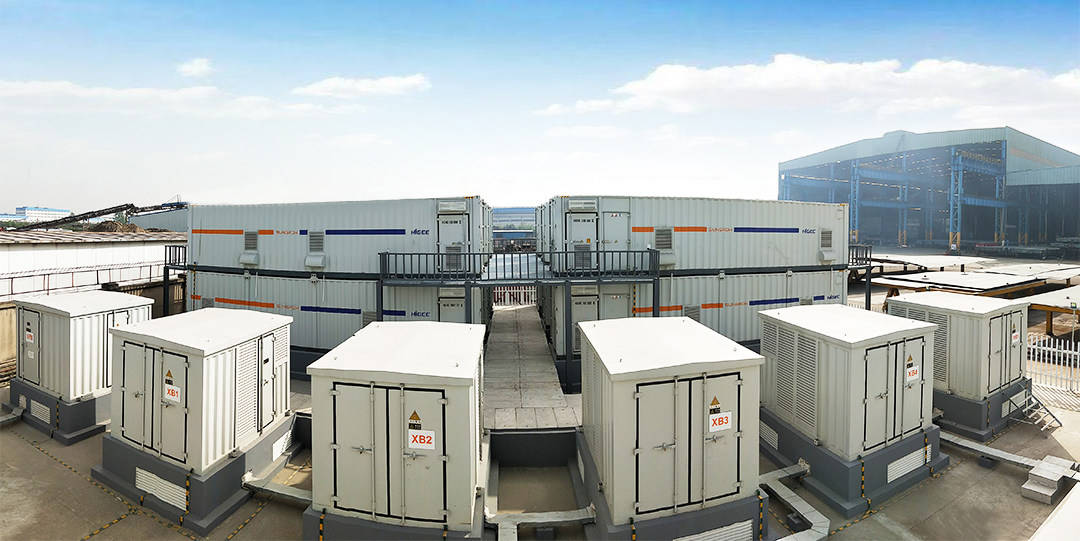【Metaverse News】The application of blockchain technology in "digital government"
Blockchain technology has the characteristics of decentralization, traceability, and immutability, making it suitable for application scenarios where data is trusted, shared, co governed, and jointly maintained to enhance trust. Blockchain technology helps to improve the security and efficiency of "digital government", assist in the construction of a trustworthy "digital government", and promote the open sharing of government data. The application of blockchain technology in China's digital government is still in its initial stage. In order to accelerate the promotion and application of blockchain technology, efforts should be made in collaboration with institutional construction, technology research and development, application environment optimization, and talent team building.

1、 Analysis of application scenarios of blockchain technology in "digital government"
Blockchain technology has the characteristics of traceability, immutability, and timestamp. It can broadcast real-time information such as data ownership, data on chain records, and data exchange records to all parties involved, and store them in distributed blocks for sharing, co governance, and co maintenance by all parties. It has broad application prospects in "digital government".
(1) Applied in the field of government statistical surveys to ensure data reliability and traceability
Reliable and traceable survey and statistical data is a barometer for understanding the laws of economic and social development, a chief of staff who provides a basis for government decision-making, and an information window for public interaction with the government and society. It is related to the scientific and rational nature of government macroeconomic regulation and decision-making. Blockchain is a "security island" for statistical survey data, and once it is on the chain, it is extremely difficult to tamper with. Applying blockchain technology in the statistical investigation function module of "Digital Government", by controlling the exchange records of "on chain" and "off chain" data, real and effective investigation and statistics of economic and social related data are carried out, thereby conducting comprehensive and multi-level real-time monitoring, early warning, and predictive analysis of economic and social development.
(2) Applied to enterprise and citizen identity authentication systems to ensure the security and trustworthiness of original information
The original information storage mechanism for enterprises and citizens based on blockchain technology cannot modify the information records and can only add new records. Therefore, the original information of enterprises and citizens is immutable, greatly protecting the information security of enterprises and citizens. Meanwhile, blockchain technology ensures that once data is established, it cannot be changed or deleted, ensuring the validity of judicial evidence, the uniqueness of identity information, and the immutability of contracts. In addition, all parties involved can directly verify personal and corporate information stored in the "digital government" system through blockchain, avoiding third-party trust institutions, which will significantly improve the efficiency of government work.
(3) Applied in the field of government information management, promoting information openness and sharing
Applying blockchain technology in "digital government" will ensure the openness and transparency of government information, and promote the open sharing of government data. The open source mechanism of blockchain technology can query the record information of various nodes and blocks in the blockchain, greatly promoting the transparency of government work and improving the government supervision mechanism. Meanwhile, the application of blockchain technology will effectively improve the registration and transaction processes of government assets or rights, such as in scenarios such as supply chain finance and digital bills. For example, in terms of land registration and transactions, anyone can directly query information such as land location, size, ownership, and transaction records recorded on the blockchain, promoting open sharing of land transaction information and effectively avoiding rent-seeking by public officials; The digital bill trading platform that adopts blockchain technology has an on chain direct clearing scheme that can achieve registration, circulation, and payment settlement functions throughout the entire lifecycle of digital bills.
(4) Applied to government databases to achieve decentralization
Using blockchain technology in the construction of government databases to build distributed or decentralized databases will greatly reduce transaction links, lower transaction costs, alleviate information asymmetry among government service participants, and improve the efficiency of division of labor and cooperation. Establish a government blockchain with an alliance mechanism, using an authorized node trust mechanism, where the authorized nodes control the identity information of the entire alliance chain, ensuring the authenticity and effectiveness of the information written into the blockchain. At the same time, a third-party authentication agency can also be introduced in the process of writing blockchain information to verify the authenticity and accuracy of the information. The use of alliance chain technology can build cross-border trade blockchain platforms and asset information disclosure platforms.
(5) Applied in the regulatory field to achieve government data traceability supervision
The traceability advantage of blockchain is of great significance for innovative regulatory models and enhancing government credibility. Applying blockchain technology in the regulatory platform of "digital government" records all information of regulated objects, enabling accurate and efficient monitoring and tracing of the real-time status of regulated objects. Once problems arise with regulated objects, blockchain technology will be used for problem tracing, greatly improving regulatory effectiveness and efficiency, and reducing regulatory costs. For example, in the food safety platform of the "digital government", blockchain technology is applied to record information on every link of food production, transportation, and sales in the blockchain. Consumers can query and verify food quality issues at any time, and conduct problem tracing. This will greatly improve the efficiency of problem food traceability and enhance the quality of life of residents.

2、 The application advantages and challenges of blockchain technology in "digital government"
Ensuring the integrity, trustworthiness, rights confirmation, security, privacy protection, and shared governance of government data is the fundamental support for building a digital government system architecture. Blockchain is a decentralized and distributed ledger technology that is suitable for the joint governance process of multiple entities, processes, and links. It has certain application advantages in digital government.
(1) Improve the security and efficiency of "digital government"
The governance architecture of "digital government" based on blockchain technology can use hash functions and asymmetric encryption algorithms to encrypt privacy protection or confidential data to ensure data security, and ensure its integrity during data sharing and exchange processes. In addition, after decentralization, government departments do not need to exchange data in real-time with the central government information system, greatly improving the efficiency of departmental collaboration, reducing the burden on the central government information system, and ensuring the security and privacy of government data. At the same time, the blockchain, which removes intermediaries, allows for point-to-point data exchange between authorized nodes without the need for third-party credit from other institutions, greatly improving the security and efficiency of the "digital government" system.
(2) Assist in the construction of a trustworthy "digital government"
The encryption algorithm used in blockchain technology and the distributed database constructed can achieve real-time synchronization, immutability, and non deletion of data across the entire network in a "one-stop" government service environment. The confident function of blockchain is the technological foundation for building a trustworthy "digital government". Each block and node in the blockchain records government information. After this information is verified and broadcasted on the chain, the blockchain begins to verify and permanently store it, making each information tamper proof and traceable. Therefore, the "digital government" based on blockchain technology has extremely high data stability and reliability. Applying a blockchain based governance architecture in building a trustworthy "digital government" ensures that once government data is generated, it is broadcasted to all participants with timestamps attached. The confident function of blockchain will facilitate the traceability and rights confirmation of government data, and its smart contract function is the technical support for "digital contract", "digital proof", and "digital governance" in digital government.
(3) Promote the open sharing of government data
The digital government governance architecture based on blockchain enables distributed storage, peer-to-peer transmission, and smart contract execution of data, enabling each government service node to strictly adhere to agreed rules, effectively implementing data sharing and sharing, as well as intelligent and automated data processing mechanisms, thereby achieving high degree of data sharing and governance.
At present, the storage of government data in China is scattered, with different data standards, and the sharing mechanism has not been fully established. Therefore, establishing a government blockchain in the short term and achieving full "on chain" government data will face severe challenges. Secondly, the types of government data are complex, and the storage capacity of some data has exceeded the capabilities of current blockchain technology, especially for massive video government data. Due to the fact that all participants on the blockchain need to store a copy of the data, the massive amount of video data will not be able to fully generate a blockchain. Therefore, currently, the massive government data is completely "on the chain" and does not have the technical conditions. Thirdly, each participant in the digital government stores all government data in its entirety, which will greatly reduce transmission efficiency and consume a large amount of storage space, posing great challenges to the transmission and storage capabilities of existing government systems.

3、 Strategy suggestions for applying blockchain technology to "digital government"
The application of blockchain technology in China's digital government is still in its early stages. In order to accelerate the promotion and application of blockchain technology, efforts should be made in collaboration with institutional construction, technological research and development, optimization of application environment, and talent team building.
(1) Consolidate the institutional foundation for the application of blockchain technology
Strengthen the top-level institutional design of blockchain government applications, increase the supply of high-quality policies, laws and regulations, and develop a legal protection framework for blockchain applications; Strengthen research on policies related to "digital government" and build a solid institutional foundation for the application of blockchain technology. At the same time, establish basic institutional norms for the implementation and application of blockchain technology, formulate specific and detailed implementation plans, effectively promote the implementation and effectiveness of relevant systems, form a joint force of institutional innovation, and provide more powerful institutional guarantees for the application of blockchain technology from the implementation level.
(2) Strengthen the research and development of government blockchain technology
Strengthen the research and development of blockchain technology related to "digital government", and promote the synergy of technology application, data exchange, government platform construction and management methods. From multiple aspects such as encryption algorithms, data models, and data sharing and governance, we will make sufficient technical reserves to meet the needs of "digital government" construction. Establish the blockchain industry ecology, accelerate the deep integration of blockchain and emerging technologies such as artificial intelligence, big data, and the Internet of Things, promote the collaborative innovation of "Internet plus+government services", and accelerate the construction of "digital government" based on government blockchain.
(3) Building an open, inclusive, and prudently regulated blockchain application environment
Applying blockchain technology in the construction of a "digital government" not only requires the courage and strength to "break", but also the wisdom and ability to "establish". "Breaking" means constantly breaking the inertia thinking and path dependence constraints of traditional e-government, and recognizing the development laws of blockchain technology; "Li" means to establish new ideas and concepts that are in line with the requirements of government service work in the new era, and to be brave enough to explore and try to apply blockchain technology. Build an open and inclusive environment that allows trial and error, vigorously promote the application of government blockchain, and carry out pilot trials in certain areas of digital government. At the same time, prudent supervision should be carried out on blockchain technology, that is, as the application scope of blockchain technology in "digital government" continues to expand, a more reasonable regulatory system should be gradually constructed.
(4) Accelerate the construction of blockchain talent team
Composite talents with knowledge of blockchain technology and government service management directly determine the promotion and effectiveness of blockchain technology application. In order to rapidly promote the application of blockchain technology in "digital government", high-level management talents need to be allocated in the top-level planning and demand design stages, and a large number of technical innovation talents are needed in the technical scheme design, technical research and development, and operation stages. Therefore, it is necessary to strengthen the training of blockchain knowledge and application abilities for existing government officials, accelerate the role transformation of general government service personnel, and adapt to new thinking and models of blockchain applications as soon as possible. At the same time, relevant policies should be formulated to encourage and support the cultivation of blockchain technology talents, improve talent appointment and performance evaluation mechanisms, increase investment in human resources, build multi-level talent training platforms, especially accelerate the cultivation of a group of leading figures and high-level innovation teams, and improve the quality of technical and management talents.

 中文
中文
 English
English




